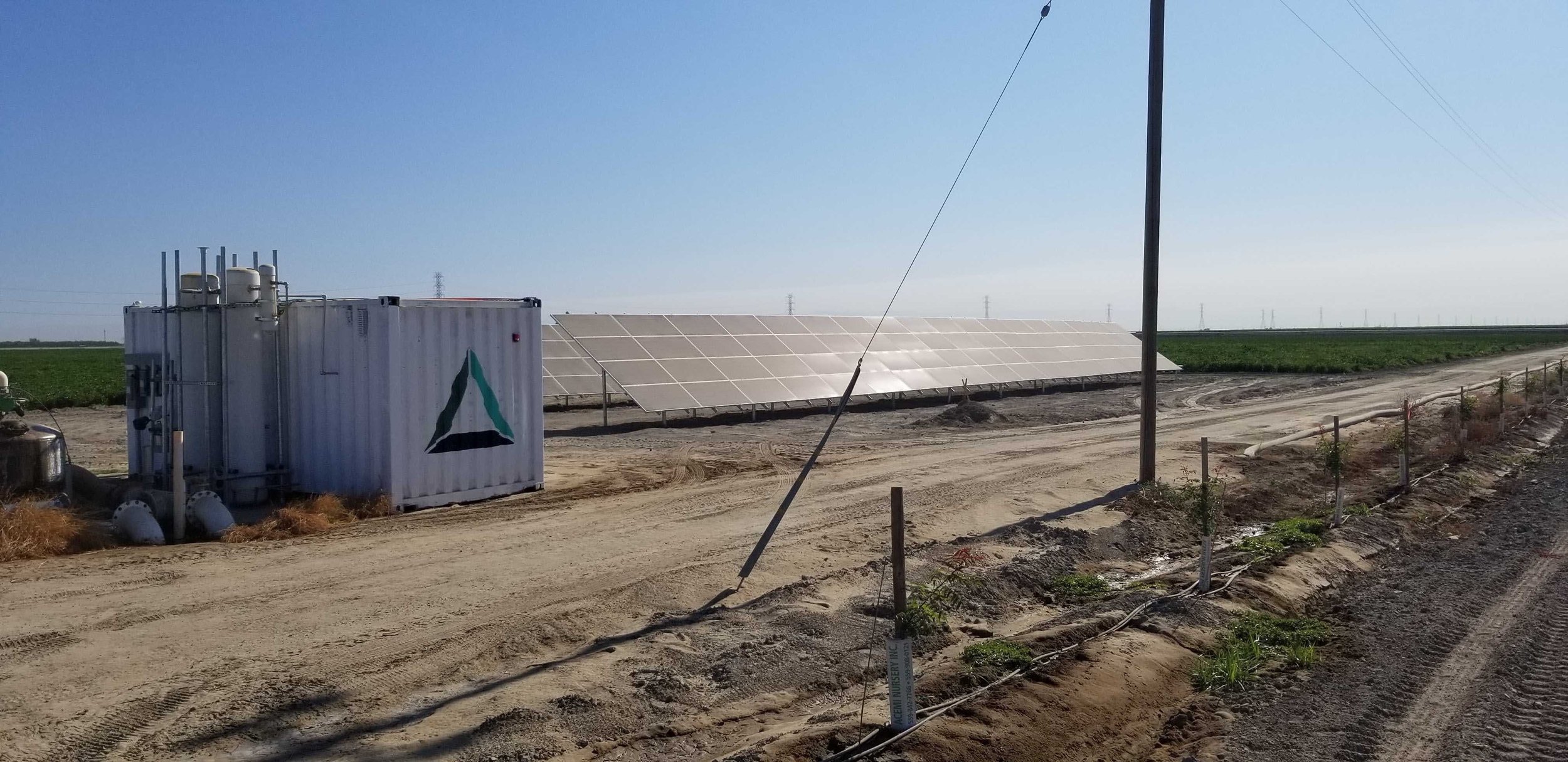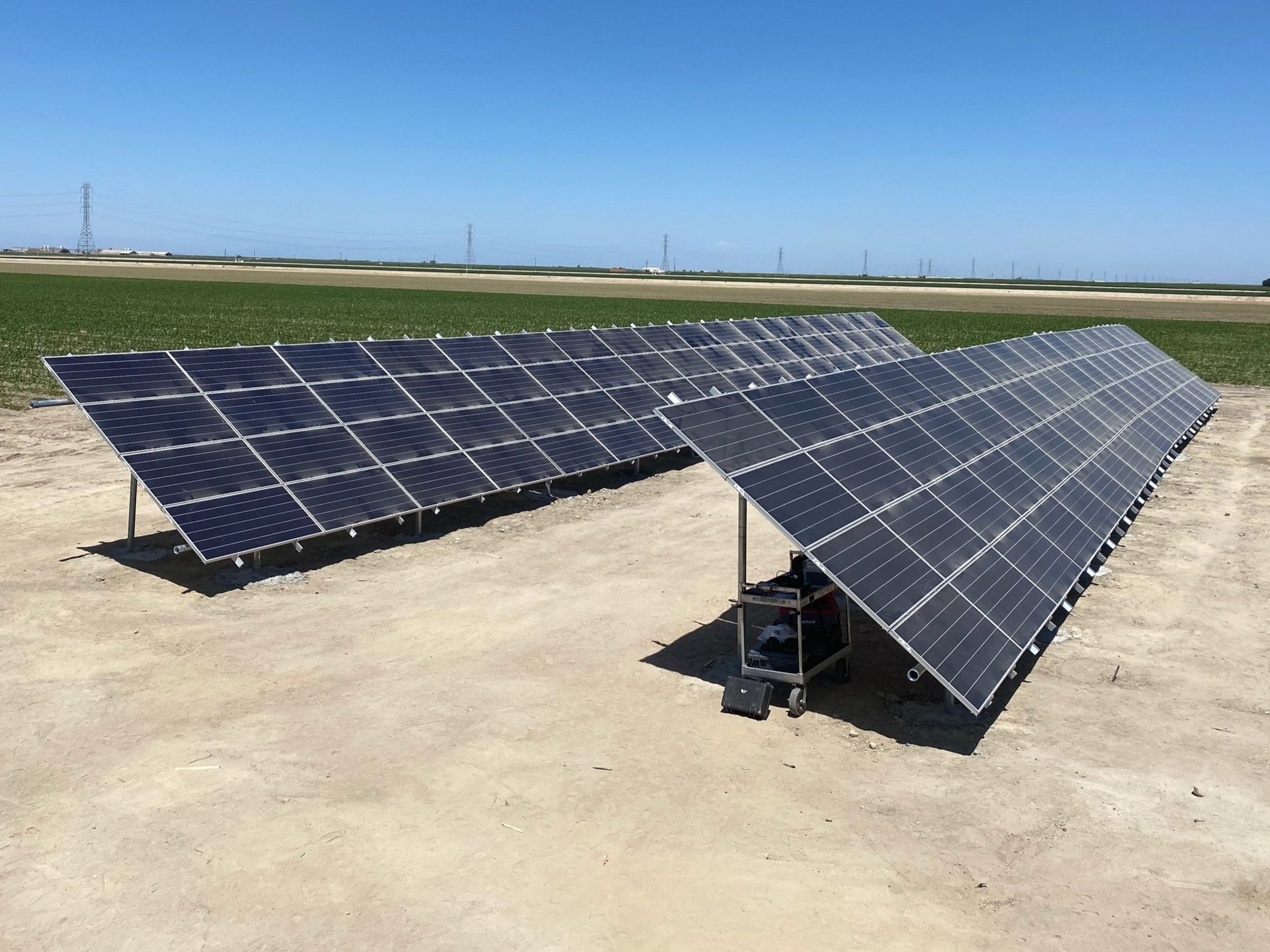On-site nitrogen production using solar arrays
$50,000 in funding and matching support
Lowers fertilizer and labor costs
Increases crop productivity
Applying a new benefit of solar power to benefit farmers and our planet.
Nitrogen production typically generates considerable greenhouse gas emissions because it relies on an energy-intensive process which consumes large amounts of coal and natural gas. For every one pound of fertilizer applied to soils, it is estimated eight pounds of carbon dioxide equivalent emissions are released into the atmosphere.
Nitricity developed a novel method of using solar panels to convert nitrogen in the air to a water-soluble nitrate which can be delivered to crops through irrigation systems. Farmers producing nitrogen on-site can significantly reduce nitrogen fertilizer costs and the carbon footprint of their operations. Applying soluble nitrogen in small pulses through drip systems reduces labor costs and field passes. It may also reduce the risk of nutrient leaching contamination of water systems compared to traditional surface applications of nitrogen fertilizer.
Agricultural Engineer Charles Hillyer, based at Fresno State University, worked with Nico Pinkowski from Nitricity to evaluate the performance of their onsite nitrogen production system for a field crop of tomatoes through an IIC-supported project.
“We are making our own lightning to create the cleanest, most efficient, least carbon-reliant fertilizer on Earth.”
— Nico Pinkowski, Nitricity CEO
In this successful proof-of-concept study, no significant yield or crop quality difference was observed for tomatoes grown with applied calcium nitrate fertilizer versus those that received high-frequency fertigation from photovoltaic unit-derived nitrate. The team has since moved on to developing and testing commercial-scale solar nitrogen production for other crops. The success of this project helped Nitricity attract additional venture capital and gain exposure with government agencies, sustainable energy groups, and others.
For more info, visit: https://www.nitricity.co/


![IMG_2199[51].jpg](https://images.squarespace-cdn.com/content/v1/633249132daf711663ddb8c2/1666991021497-BT62MKRK7PM5WXHYCDMD/IMG_2199%5B51%5D.jpg)
